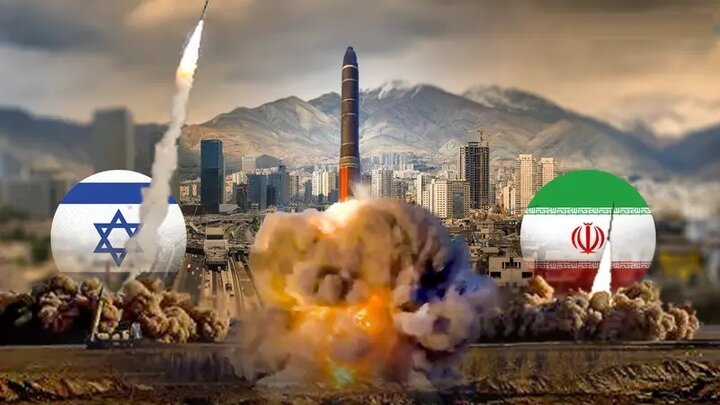How Irans victory over Israel redefined deterrence rules
Iran’s victory in this war was not solely due to its high-tech capabilities. Rather, its triumph stemmed from its confident entry into the conflict, enhanced national solidarity, and unwavering determination to pursue full independence.

The Zionists suffered a defeat in the 12-day war with Iran—a battle in which they had hoped to achieve an absolute victory—but instead received an unprecedented strategic blow.
This 12-day war, which erupted after the Israeli regime's brutal aggression against Iranian territory, was not merely a short-lived, full-scale military confrontation. Rather, it marked a unique moment that changed the rules of conflicts in the region and reshaped regional deterrence and alliances.
Iran entered the war in defense of its sovereignty and its legitimate right to possess nuclear and missile capabilities, and ultimately emerged victorious. In contrast, the Zionist enemy suffered defeats on multiple fronts. Its reputation was damaged, its weaknesses became exposed, and its domestic public opinion was left in shock.
The War Began by Zionist Decision and Ended at America's Request
After a prolonged period of threats and rising tensions with Iran, the Zionist regime launched a military and aggressive operation against specific Iranian sites, scientists, and commanders, believing that this surprise attack would force Iranian officials to retreat or remain silent.
However, the Iranian response was not what Tel Aviv had anticipated. Tehran launched a wide-scale and precise missile attack against the occupied territories, disrupting the Zionist regime’s air defense systems.
Within just 72 hours, the Zionist regime realized its strategic mistake and found itself under an ongoing wave of Iranian missile attacks that disrupted its military infrastructure. As a result, Tel Aviv, spearheaded by Washington, initiated a series of communications and mediations to swiftly establish a ceasefire and mitigate the growing crisis on the ground.
Iranian Missiles Strike and the Zionist Regime’s Crushing Defeat
Despite the Zionist regime’s intense attacks during the first days, Israel failed to inflict significant damage on Iran’s nuclear facilities or missile capabilities.
On the contrary, Iranian forces succeeded in accurately targeting the Zionist regime’s military and intelligence centers in the Negev and Ashdod, along with power plants and air defense radar systems. These missiles penetrated multiple layers of air defense and entered Tel Aviv’s airspace—an unprecedented event in itself.
Collapse of Zionist Deterrence: When the Iron Dome Failed
The greatest shock the Zionist regime faced during this war was the collapse of the myth about its air defense systems, which had been heavily glorified over the past years.
This war revealed that the Iron Dome and David’s Sling systems could not intercept Iranian missiles, especially those produced in recent years. These missiles hit critical targets of the Zionist regime.
Internal Unity in Iran vs. Division in Israel
One of the Zionist regime's major miscalculations was the expectation of internal division in Iran, which it had attempted to provoke through cyber warfare and airstrikes against military and scientific commanders. However, the result was the exact opposite.
While many of the Zionist regime's espionage networks were active inside Iran, Iranian security services managed to dismantle them during the war. The streets of Iran witnessed unprecedented demonstrations in support of the Islamic Republic’s sovereignty. This war, in fact, once again fostered internal unity in Iran and raised national awareness.
In Zionist society, however, the war deepened rifts between military and political institutions. Numerous reports emerged about tensions between army commanders and prime minister Benjamin Netanyahu’s office. Moreover, public pressure on the Israeli regime’s leaders grew significantly, with widespread demands to investigate the causes of the missile defense failures, Israel’s regional isolation, and the collapse of its internal front in the face of the war's shock.
Conclusion
Iran’s victory in this war was not solely due to its high-tech capabilities. Rather, its triumph stemmed from its confident entry into the conflict, enhanced national solidarity, and unwavering determination to pursue full independence.
In contrast, the Zionist regime ended the war in a state of instability, facing political defeat, internal discord, and a collapse of public trust. The Zionists were defeated in a battle they had hoped to win decisively, but instead received an unprecedented strategic blow.

Write your comment.